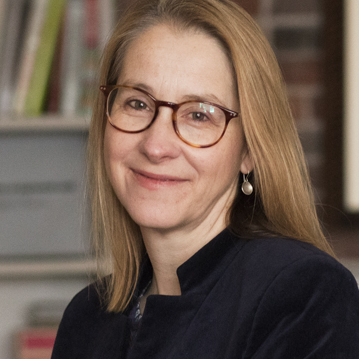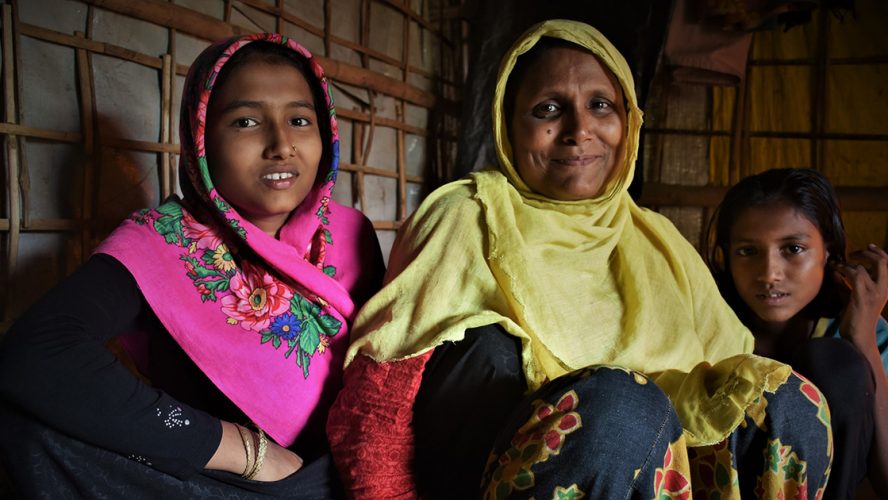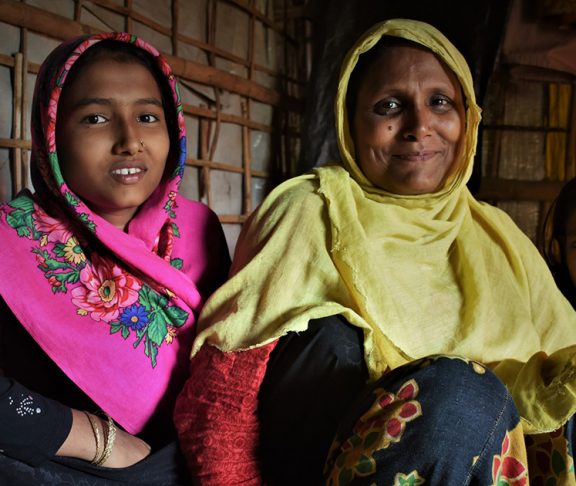
Julie Delahanty
Executive Director,
Oxfam Canada
Around the world, people are suffering the devastating impacts of humanitarian crises. An unprecedented 68.5 million people are displaced with many living in refugee camps. While everyone suffers during conflict and displacement, women and girls are particularly vulnerable. They face the risk of sexual violence during everyday tasks like collecting water. They are also shut out of important decisions that affect their lives.
Oxfam, a global organization working to end the injustice of poverty and inequality in more than 90 countries, is on the ground providing humanitarian assistance in almost every crisis zone around the world.
Julie Delahanty, Oxfam Canada’s Executive Director, has fought for women’s rights her whole career and has seen first-hand the hardship women face. “Gender inequality stems from deep-rooted social norms and unfair social, economic, and political structures that are stacked against women,” Delahanty says. “During humanitarian crises, gender discrimination is often exacerbated.”
Gender inequality stems from deep-rooted social norms and unfair social, economic, and political structures that are stacked against women. During humanitarian crises, gender discrimination is often exacerbated.
Julie Delahanty, Oxfam Canada
What women know matters
Solving this problem starts with listening to women when delivering humanitarian aid. In Bangladesh’s congested Rohingya refugee camps, Oxfam’s research revealed that one third of women say they feel unsafe using the toilet — many go hungry and thirsty to avoid going to the toilet, suffering abdominal pain and infections as a result.
Oxfam listened to groups of Rohingya women and girls who highlighted their safety and privacy concerns, especially in relation to personal hygiene and menstruation. In response, it brought female architects into the communities to redesign shelters, toilets, and bathing blocks to be more appropriate for women. They also installed solar-powered lights around refugee camps and provided portable solar lamps so that women feel safer leaving the shelters after dark.
“We need to listen to women’s voices to understand the realities they face every day, but we also need to recognize their tenacity and resilience,” Delahanty explains. “We must ensure that they are in the driver’s seat for every decision, from where to put toilets in refugee camps to playing a leadership role in global peace talks.”
She emphasizes the importance of local women’s rights actors and organizations on the frontlines of these crises. “They are under-funded and under-resourced, but frequently best-placed to know the type of humanitarian assistance that works for women.”
We need to listen to women’s voices to understand the realities they face every day, but we also need to recognize their tenacity and resilience.
Julie Delahanty, Oxfam Canada
#AskHer
Oxfam’s What She Knows Matters campaign aims to ensure that in all humanitarian crises, the needs of women are considered and decision-making power rests in their hands.
“The delivery of food, water, sanitation, and shelter by humanitarian aid organizations like ours are absolutely critical,” Delahanty notes. “But humanitarian aid is also about responding to the specific needs of women, championing their rights, and ending inequality for millions of women around the world.”



